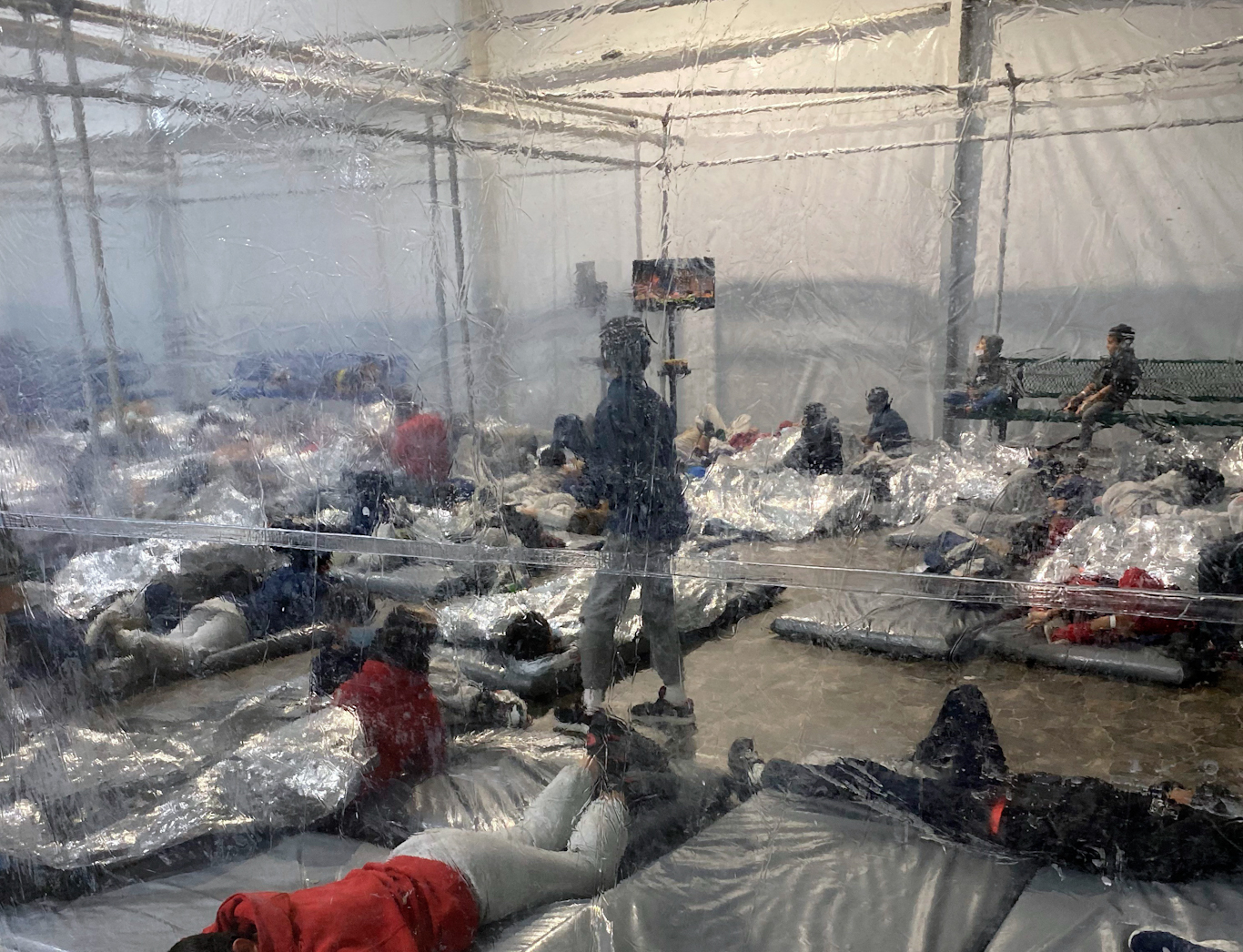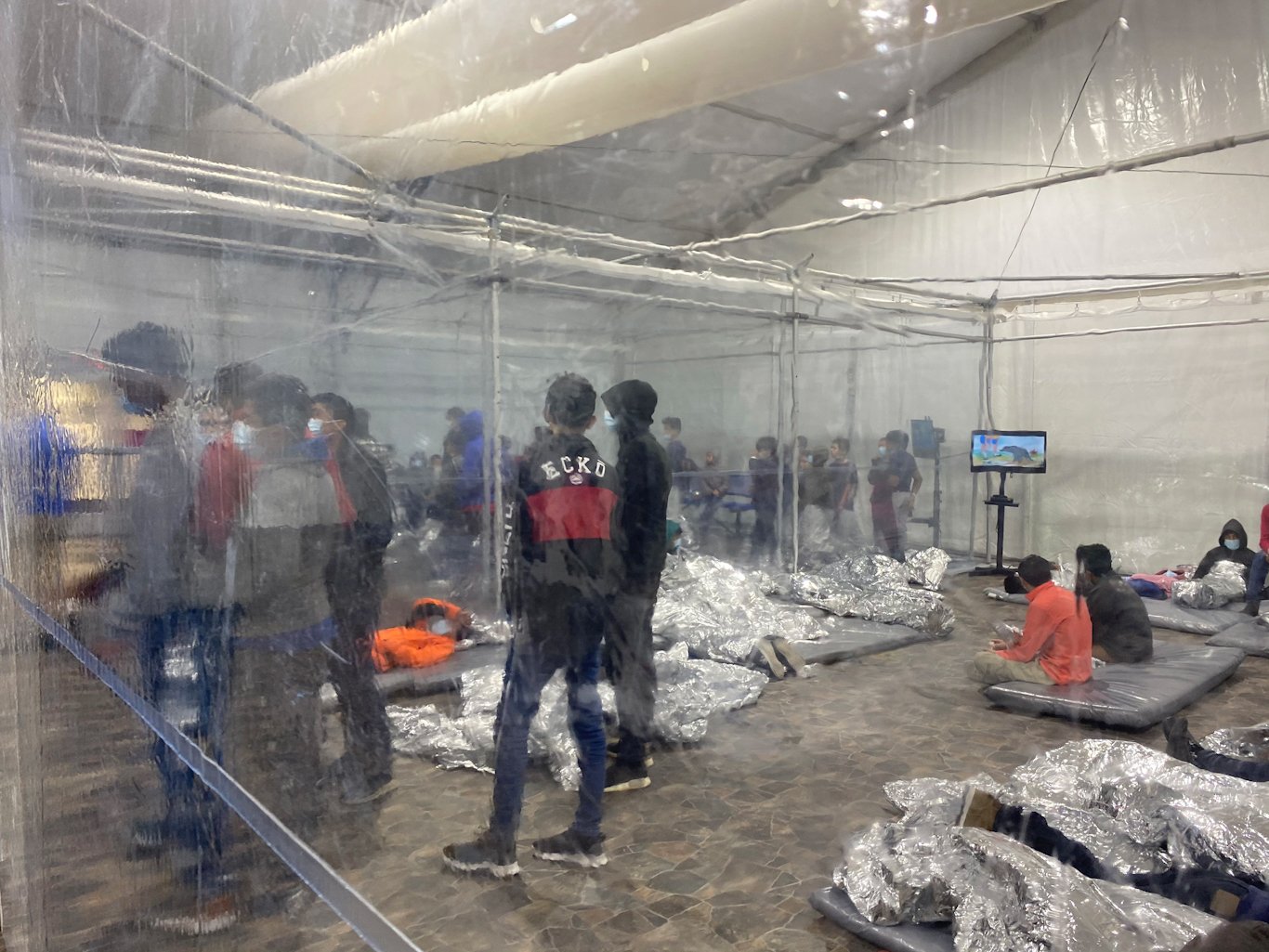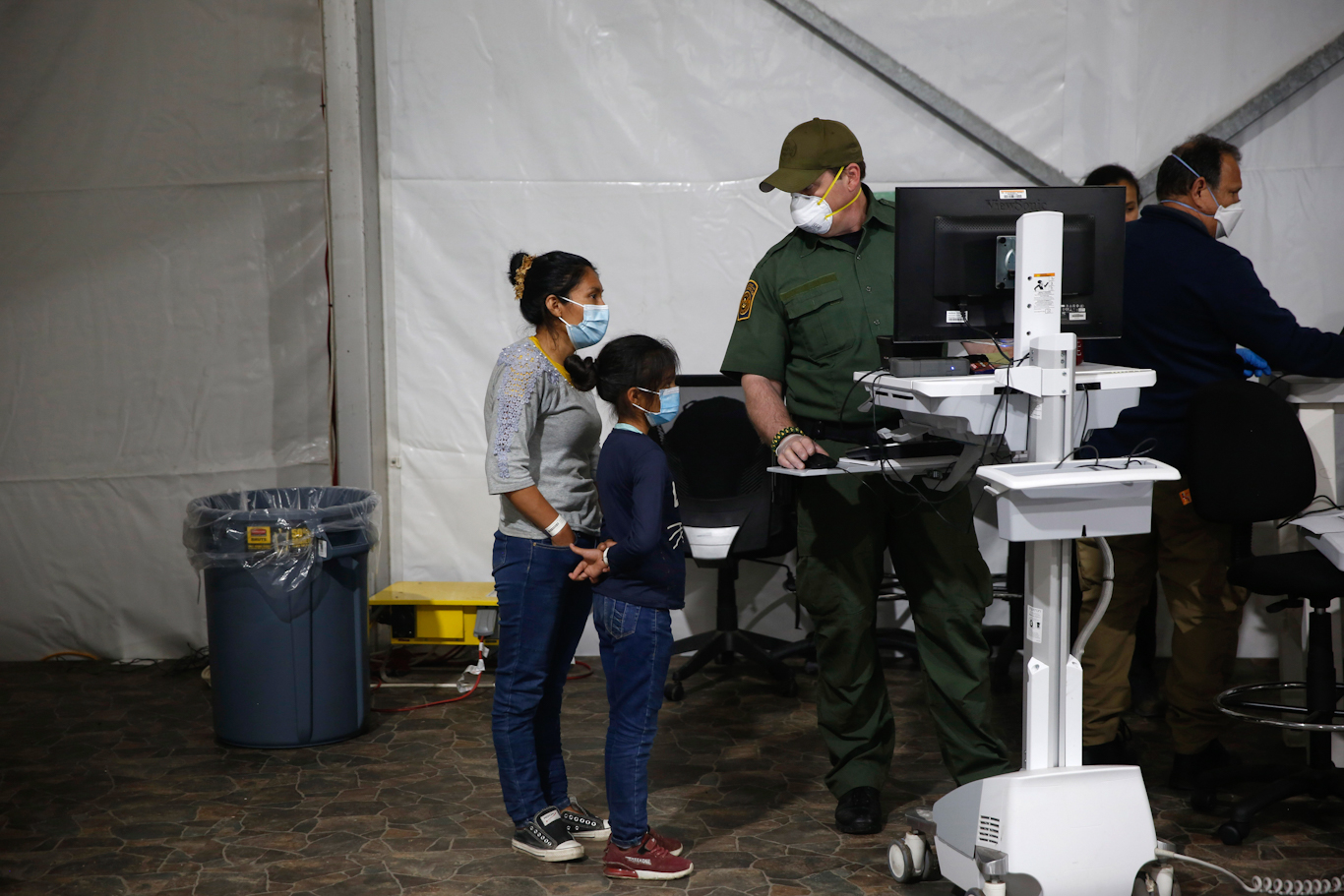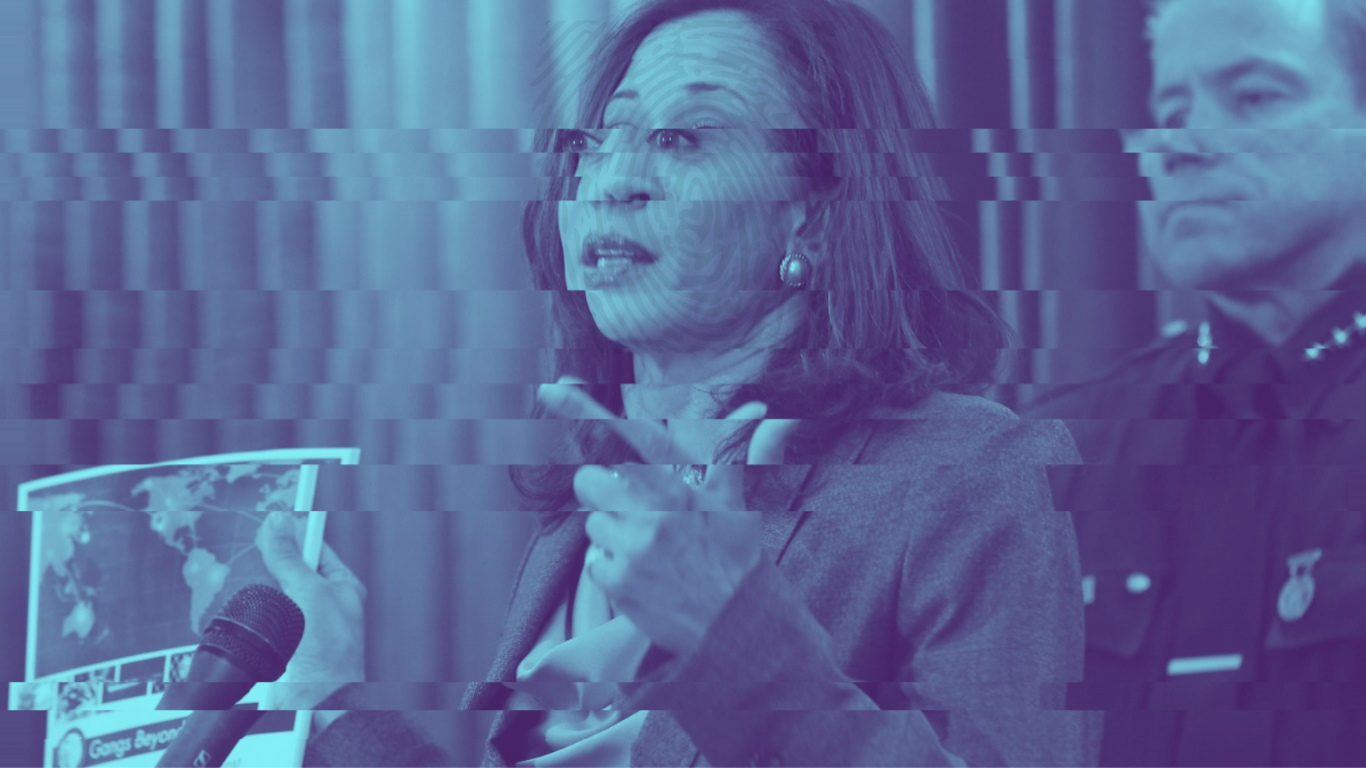WASHINGTON — The White House announced recently that Vice President Kamala Harris would take charge of the Biden administration’s “efforts to deter migration to the southwestern border by working to improve conditions in Central America.” The effort would oversee an infusion of billions of dollars into the “ravaged economies” of the so-called Northern Triangle of Central America (NTCA), comprising the nations of El Salvador, Honduras, and Guatemala.
According to the Pew Research Center, immigration to the United States between 2007 and 2015 from these three countries outpaced all others, growing by 25%. More recent data provided by the UN Refugee Agency shows how the pandemic has exacerbated the endemic problems of violence and extortion that motivate the emigrants’ departure, causing over half a million people from the region to migrate in 2020.
The Missing Migrants Project, which tracks incidents involving migrants on their way to an international destination, reveals how dangerous such journeys can be – in particular for those who attempt the 2,000-mile excursion through Mexico towards the U.S. – with 65% of the 4,000 deaths recorded from 2014 until 2020 occurring along this migration corridor alone.
The brutality of this humanitarian catastrophe is underscored by the recent massacre of 19 Guatemalan migrants in the Mexican state of Tamaulipas in January by cartel-linked, U.S.-trained state police special forces called Grupo de Operaciones Especiales (GOPES). Early reports had pointed to drug cartel assassins looking to sabotage a competing cartel’s migrant smuggling business, but evidence increasingly mounted against the GOPES and 12 of its officers were formally charged with the heinous crime two weeks later.
News of Harris’s selection came one day after a delegation led by Roberta Jacobson, former U.S. ambassador to Mexico, arrived in the Mexican capital to engage in high-level talks between the governments to address the “root causes” of the ongoing immigration crisis at the border. The axiom seems to be an agreed-upon phrase that will be used as part of any public-facing discourse of this multilateral initiative, but it is unclear how far down into those actual roots any of the governments involved will be willing to dig.
The politics of the matter
Leading on one of the most polarizing and complicated issues in American politics is already being billed as Kamala Harris’s ‘signature’ issue. It comes on the heels of intense media scrutiny over the actions of the Biden administration, which has been accused of hypocrisy after it restored migrant detention facilities to “pre-pandemic” capacity, relying on its press secretary and establishment media to distinguish its approach from the previous administration’s family separation policy.
Despite their arguments, photos released by Rep. Henry Cuellar (D-Texas) of a crammed U.S. Customs and Border Protection (CBP) detention center in his state, the day before the bilateral meeting was scheduled to take place in Mexico, reveal that conditions have changed little for migrants.


CBP released its own photos and video in response to Cuellar, accompanied by a statement assuring the public that it is doing the best it can to “transfer unaccompanied minors to the U.S. Department of Health and Human Services (HHS) as quickly and efficiently as possible.”
As the golden goose egg of American politics, immigration will give Harris an opportunity to carve out a strong national profile and, with her background as California’s top cop, she is perfectly positioned to reap the political benefits sure to come her way as she parries predictable blows from the opposition, like Arizona governor Doug Ducey’s characterization of her as “the worst possible choice” for the assignment.
When children are ripped from their parents and put in cages, immigration justice is on the ballot. pic.twitter.com/gtSlFQAn5V
— Kamala Harris (@KamalaHarris) November 11, 2019
Attacks from a three-term Republican governor who signed Trump’s patch of border wall will help Harris to gloss over her troubling history as a state prosecutor and questionable track record as a member of Congress, which go right to the heart of those “root causes” she has now been tapped to address in relation to the crisis at the border.
Progressive deception
Among the litany of horrors hiding in the broad definition of the migrant crisis are issues like child labor, sex trafficking, kidnapping, organ trafficking, and the so-called war on drugs, which is often part and parcel of these crimes and goes hand in hand with the carceral state where Harris made her career.
During her tenure as attorney general for the state of California, Harris presented herself as a “progressive prosecutor.” Nevertheless, her record left a lot to be desired in terms of any actual progressive results and she has been roundly criticized for controversial stances on the death penalty and her staunch defense of California’s notoriously racist and trigger-happy police forces.
One of the California AG’s most high-profile cases centered on the issue of sex trafficking when she “zealously” prosecuted Backpage.com, forcing the online publication to shut down as part of her office’s ostensible campaign to prioritize the fight against human trafficking. The actual consequences of the state’s victory had the opposite effect of its purported goal, further pushing the sex trade underground and opening sex workers to greater risks of abuse and exposure to criminal networks, according to critics.
As a member of the Senate, Harris once again played a key role in the issue, this time at a national level with the passage of the Fight Online Sex Trafficking Act (FOSTA) and the Stop Enabling Sex Traffickers Act (SESTA), which were signed together into law as the FOSTA/SESTA by Donald Trump in 2018. The legislation has come under fire from sex workers and LGBTQ advocacy groups for worsening conditions for victims of sex trafficking by removing “safe” venues for sex workers to sell their services.
According to Nina Luo of Decrim NY:
[The law] targets, arrests, and incarcerates clients of sex workers; as well as drivers, landlords, family members, partners, who provide services and care to sex workers; and sex workers collaborating to keep each other safe [and] puts people who trade sex at increased risk of violence, economic instability, and labor exploitation.”
Significantly, Harris’s participation was geared exclusively towards working with Big Tech and their concerns over how the bills would affect their business. In fact, Harris – along with Bernie Sanders – refrained from sponsoring the bills until these matters were settled to the satisfaction of Google, Facebook, and others represented by the Internet Association, which testified on their behalf in the Senate regarding the legislation.
Immigrant Song
Beyond Harris’s familial ties to Silicon Valley through her brother-in-law, who is Uber’s chief legal counsel, California’s former top cop has displayed an abiding interest in technology applied to government, which is especially concerning given her law enforcement background and the job she has now been tasked with in regards to the dispossessed of Central and North America.
In 2015, Harris launched a “first-of-its-kind” smart criminal justice platform called OpenJustice, which she touted as a way for the state to measure “effectiveness in the criminal justice system with data and metrics.” The platform’s publicly available dashboard features statewide data on arrest rates, death in custody, and arrest-related deaths, as well as law enforcement officers killed or assaulted. A year later, Harris expanded the system with URSUS – a use-of-force data reporting and collecting mechanism developed by social entrepreneurship non-profit organization Bayes Impact in conjunction with the California Department of Justice’s Bureau of Crime Information and Analysis.
OpenJustice partnered with the White House to create multiple versions of the software that other states could implement. The “OpenJustice team” focuses on different parts of the criminal justice system, develops “roadmaps” for juveniles, and conducts “deep data dive[s]” into the “school-to-prison pipeline,” according to Justin Elrich who was Harris’s special assistant attorney general on tech policy matters and is currently head of trust & safety policy at Americans for TikTok. Another OpenJustice project, taken on by Stanford and Facebook engineers, revolved around “understanding of what goes on in jails and state prisons, as well as ending the vicious cycle of recidivism.”
Last year, Harris’s successor at the California attorney general’s office, Xavier Becerra, unveiled the newest OpenJustice dashboard before leaving to head the Department of Health and Human Services, which is the lead agency that provides housing for undocumented children coming across the U.S.-Mexico border. Add the former Director of U.S. Citizenship and Immigration Services Alejandro Mayorkas — who Harris swore in on February 2 as the seventh Secretary of the Department of Homeland Security, and direct boss of CBP — and the stage is set for a massive tech overhaul of the migrant crisis.
Bread and circus and data
By the time Becerra had filed the one-hundredth lawsuit against then-President Donald Trump, the political circus was already drawing to a close. California had been the butt of Trump’s jokes since the early days of the campaign, and his crude insults against Mexicans and promises to build a wall that the neighbors would pay for made what was once the northernmost part of Mexico a natural ally of the “resistance” that ended up carrying Biden into office.
At the end of March 2019, only about 50 lawsuits had been filed by the California DOJ, but the tarp was still up and Trump was in the middle of the John Bolton epoch of his administration, which featured a number of very loud saber-rattling incidents targeting multiple Latin American nations. The world was living through the “migrant caravans,” the height of the Juan Guaidó quasi-regime-change efforts in Venezuela, and the short-lived “troika of tyranny” – a derisive moniker coined by Bolton to lump together all the “evil socialism” of Nicaragua, Cuba, and Nicolas Maduro’s government that failed to catch on.
That month, the President would announce the discontinuation of aid to the Northern Triangle countries of El Salvador, Honduras, and Guatemala in an ostensibly punitive move designed to teach the countries a lesson about keeping their unruly border-crashing citizens home. About $500 million in financial assistance was paused while Mike Pompeo’s state department developed “a list of criteria that governments of the three countries have to meet in order for U.S. assistance to resume.
The spectacle hid the reality. While some funds were cut, most were repurposed to serve the interests of the U.S. national security state in those countries. Approximately 58% of the revamped 2019 Central American aid budget was allocated to a program developed jointly by the Obama and Bush administrations called the Central America Regional Security Initiative (CARSI), which funds equipment, training, and technical assistance for the military and police in those regions.
Numerous companies were involved in CARSI. Israel’s Cellebrite, profiled by MintPress in a previous article, received $782,000 to furnish the Honduran police with its proprietary UFED mobile data extraction technology. IBM, Pen-Link, CellXion, and JSI Telecom are just a few of the many private sector security technology firms that have been benefiting from America’s vast transnational law enforcement client-state apparatus.

Most significantly, no aid was cut to federal programs working with NTCA countries to establish “information exchange mechanisms in the fight against human trafficking and other crimes,” most of which are conducted through the Immigration and Customs Enforcement (ICE) International Operations Division, such as a program called Biometric Identification Transnational Migration Alert Program (BITMAP), first created in 2011.
The Biometric Identification Transnational Migration Alert Program Authorization Act of 2018 was passed despite strong objections from the ACLU and other civil rights advocacy groups decrying the lack of privacy protections and allows ICE agents to provide biometric training and equipment in countries around the world. In addition, the data collected is shared with U.S. biometric databases like HART, developed by Northrop Grumman for DHS and intended to become the “largest database of biometric and biographic data on citizens and foreigners in the United States.”
According to Privacy International, a DHS presentation of HART in 2017 projected it would be able to “scoop up” 180 million “new biometric transactions per year by 2022.” The staggering figure won’t come from NTCA countries alone: BITMAP has already been deployed to more than 14 countries, with “near-term plans to expand” to others.
Show and tell
Harris has now been given the green light by the White House to “pump billions of dollars” into the economies of the Northern Triangle countries in order to “address the root causes that cause people to make the trek.” Considering that human trafficking is a $150 billion-a-year industry and the concomitant drug war waged by the government Harris represents produces many multiples of that, it would take a rather serious investment to pull those “root causes” from the ground.
The language dovetails with Mexican President Andres Manuel Lopez Obrador’s own exhortations calling for Washington to “spur development” in Central America in order to address the “root causes behind migratory flows in the region” — as posited in a statement by Mexico’s foreign ministry issued after the first leg of the talks, which were supposed to continue in Guatemala but were postponed thanks to a volcanic eruption.
Formal deployments by the Mexican military in the state of Chiapas and the ostensible closure of the border with Guatemala to “stop the spread” of Covid-19 show that Mexico is on board with the Biden party line. But, for now, the crisis at the U.S. border remains a political priority and hundreds of Central American migrants continue to cross daily into Mexico through deliberately unguarded portions of the border.
Any actual halt to the unfettered passage of refugees on their way north would also put a halt to the political ambitions of Kamala Harris, who is poised to make immigration the highest yielding asset in her burgeoning “portfolio,” which will be modeled on Biden’s own path to the Oval Office when he took the lead on these same issues during his time as Barack Obama’s VP.
According to La Jornada reporting from the ground in Chiapas, established transportation channels over land and water continue to funnel migrants through the Lacandon jungle as they make their way north to their intended destination.
“Look,” Harris told CBS, “we are addressing it. We’re dealing with it. But it’s going to take some time.”
Feature photo | MintPress News | AP
Raul Diego is a MintPress News Staff Writer, independent photojournalist, researcher, writer and documentary filmmaker.


